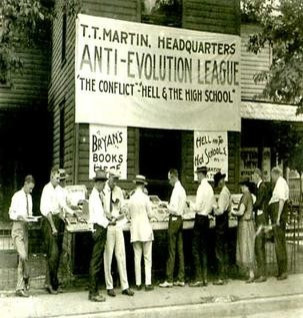Tennessee Law Opens Door to Creationism In Science Classes

Soon Tennessee classrooms will be able to debate the merits of creationism and evolution side-by-side, after Gov. Bill Haslam on Tuesday refused to sign a controversial proposal dubbed the Monkey Bill, but allowed it to become law anyway.
The Republican governor said he allowed the legislation, which allows public school teachers to encourage classrooms debates that challenge accepted scientific theories regarding controversial subjects such as evolution, global warming and human cloning, to become law despite his own misgivings.
I do not believe that this legislation changes the scientific standards that are taught in our schools or the curriculum that is used by our teachers. However, I also don't believe that it accomplishes anything that isn't already acceptable in our schools, Haslam said in a statement released on Tuesday.
Haslam also said he questioned whether the bill would actually bring clarity and not confusion to state educational guidelines, which is why he decided to let it become law without its signature.
While Haslam could have vetoed the measure, it likely could have been easily overturned by the state's Republican-led Legislature.
Critics of the legislation -- including the National Academy of Sciences and the American Civil Liberties Union -- argue the bill was passed as a cover for essentially reintroducing creationism, the belief that life was created on Earth by God, into Tennessee public schools. Opponents have linked the new law to the state's famous Scopes Monkey Trial of 1925, which drew national attention when Dayton public school teacher John Scopes was found guilty of violating state law after teaching the theory of evolution in his science classes.
The state Supreme Court later overturned the verdict. The state's anti-evolution law was repealed in 1967.
While the newest bill does not allow public school teachers to raise alternate theories to the subjects in question, teachers are now required to explore those subjects if they are raised by students. Exploring these alternative theories will, according to the legislation, allow students to learn about scientific evidence, develop critical thinking skills and respond appropriately and respectfully to differences of opinion about controversial issues.
However, the legislation also emphasizes that its language shall not be construed to promote any religious or non-religious doctrine, promote discrimination for or against a particular set of religious beliefs or non-beliefs, or promote discrimination for or against religion or non-religion.
© Copyright IBTimes 2025. All rights reserved.





















